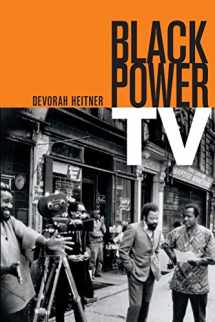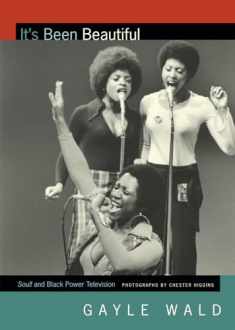
Black Power TV
Book details
Summary
Description
In Black Power TV, Devorah Heitner chronicles the emergence of Black public affairs television starting in 1968. She examines two local shows, New York's Inside Bedford-Stuyvesant and Boston's Say Brother, and the national programs Soul! and Black Journal. These shows offered viewers radical and innovative programming: the introspections of a Black police officer in Harlem, African American high school students discussing visionary alternatives to the curriculum, and Miriam Makeba comparing race relations in the United States to apartheid in South Africa. While Inside Bedford-Stuyvesant and Say Brother originated from a desire to contain Black discontent during a period of urban uprisings and racial conflict, these shows were re-envisioned by their African American producers as venues for expressing Black critiques of mainstream discourse, disseminating Black culture, and modeling Black empowerment. At the national level, Soul! and Black Journal allowed for the imagining of a Black nation and a distinctly African American consciousness, and they played an influential role in the rise of the Black Arts Movement. Black Power TV reveals how regulatory, activist, and textual histories are interconnected and how Black public affairs television redefined African American representations in ways that continue to reverberate today.


We would LOVE it if you could help us and other readers by reviewing the book
Book review




